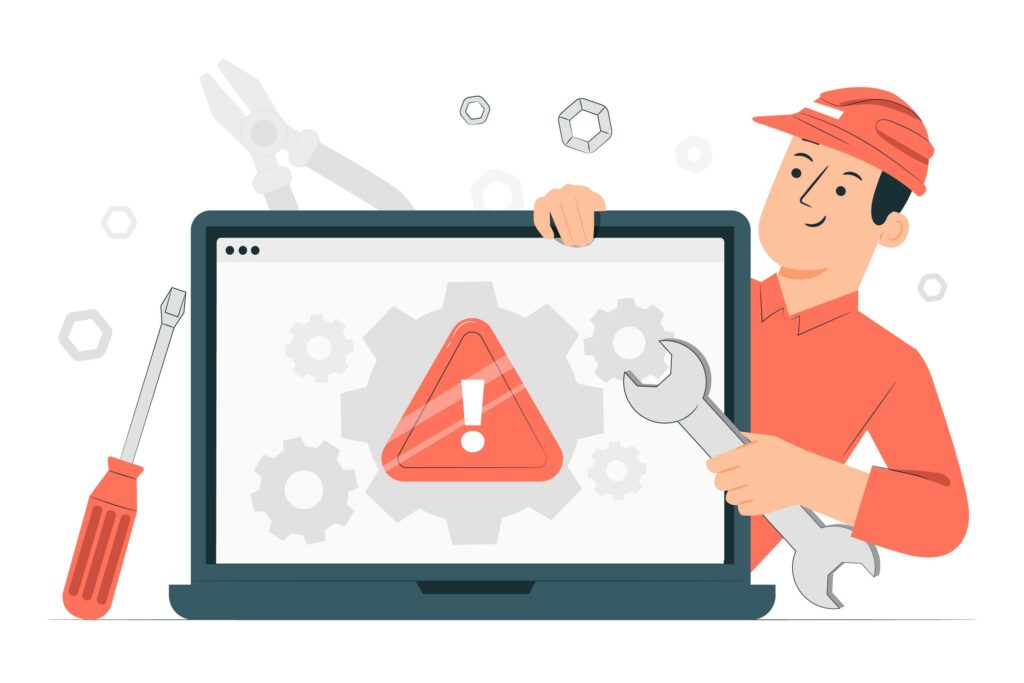What is the meaning of orchestration in DevOps, and why it’s important to invest in it? DevOps orchestration is crucial in dealing with the complexities of modern IT operations.
As businesses increasingly adopt DevOps practices to stay competitive, innovate quickly, and meet customer demands, it has become a vital part of digital transformation. DevOps enables teams to release software more frequently.
However, DevOps approaches also bring several challenges, such as maintaining code quality and breaking down silos. Therefore, it’s essential for organizations to understand and use orchestration tools to overcome these challenges and simplify DevOps complexities.
What is the meaning of orchestration in DevOps?
DevOps orchestration simplifies the complexity of DevOps toolchains by automatically handling workflows and dependencies within DevOps processes.

DevOps is a commonly adopted set of practices and tools aimed at optimizing the development, deployment, and updating of software. At its simplest, DevOps practices can lead to intricate processes, isolated data, and dispersed responsibilities.
While DevOps offers advantages in enhancing and supporting particular stages of the software development lifecycle, these practices can complicate the management of IT operations. Fortunately, DevOps orchestration has developed to tackle these issues.
Why should you invest in DevOps orchestration?
Organizations involved in extensive digital transformation projects are increasingly adopting both public and hybrid cloud services. While cloud providers facilitate quicker delivery of new services, they also necessitate new practices, such as meticulous cost monitoring.
A key motivation to invest in DevOps orchestration is to bridge the developer experience gap. This gap arises when organizations invest in various, separate DevOps tools to tackle distinct but specific challenges. However, this often leads developers to spend more time integrating these tools rather than innovating. Without integrated orchestration to automate DevOps workflows, organizations squander time, expertise, and resources.

Moreover, as IT operations grow more intricate, manual, and isolated, developers are under mounting pressure to hasten release cycles. Manual management and securing of multi-cloud environments have become impractical. Monitoring and logging tools that were effective with previous IT architectures now lack the necessary context and integration to comprehend the state of complex systems or identify and rectify security issues.
Currently, DevOps orchestration is essential for achieving a comprehensive understanding and control over infrastructure, services, and software development practices.
Is the Meaning of DevOps Orchestration Distinct from DevOps Automation?
In DevOps, orchestration and automation are frequently used interchangeably. Although these DevOps concepts share similarities, they are inherently different.
DevOps automation involves the automation of a single manual task or a series of related, repetitive tasks. Some examples of DevOps processes that can be automated include application deployment, provisioning and deploying changes to production environments, software testing, infrastructure and log management, and performance monitoring.
Conversely, DevOps orchestration is the process of automatically coordinating and managing multiple automated tasks to form a fluid DevOps workflow. Thus, orchestration integrates all automated components in the DevOps lifecycle, such as continuous integration, continuous deployment, continuous delivery, and automated testing.
While automation focuses on simply automating routine, everyday tasks, orchestration encompasses various dynamic elements and necessitates sophisticated logic to:
- Make informed decisions based on the output from an automated task
- Adapt to changing circumstances and conditions
- Organize tasks into distinct steps and actions
Fundamentally, orchestration is the automation of automation. Orchestration becomes relevant when automation reaches its limitations, as one cannot orchestrate manual, non-automated tasks.
Downsides of DevOps Automation
DevOps automation is appealing for many reasons. It saves time, enhances quality, optimizes costs, and importantly, frees up DevOps teams from tedious tasks. However, organizations can easily stumble into the pitfalls of automation if DevOps processes are not automated correctly or if there’s excessive automation.

While appropriate DevOps automation can boost production efficiency, excessive automation can stifle innovation within the DevOps initiative. Here are some prevalent pitfalls of DevOps automation that organizations should steer clear of:
1. Over-automating testing
Test automation is a crucial part of the DevOps lifecycle, allowing teams to enhance code quality and expedite its progression through the DevOps phases. However, hastily automating all testing processes can hinder your DevOps goals.
While automating testing functions might lead you to anticipate smooth CI/CD pipelines, comprehensive test coverage, and empowered testing teams, you could actually end up with congested CI/CD pipelines, oversight of errors, and delayed feedback. To strike a balance in test automation, organizations should opt for streamlined testing processes, concise test cycles, and a focus on quality engineering.
2. Excessive automation in builds
When executed correctly, build automation compiles source code into binary code, packages it, performs automated tests, and integrates the build with the main code. Problems arise when the team incorporates multiple tests into the existing build workflows.
Numerous alerts and notifications for each code check-in can complicate the straightforward workflow and consume more time. Additionally, addressing a plethora of notifications can overwhelm developers, potentially causing them to overlook critical alerts.
Therefore, it’s essential to maintain the appropriate level of automation in build processes. Evaluate the frequency of code check-ins, the branching strategy, and the team’s capacity to ensure the correct level of build automation.
3. Excessive infrastructure automation
Infrastructure automation is a vital element of DevOps automation. Yet, over-automating your infrastructure can lead to uncontrolled environments, IT inefficiencies, and escalating costs. It’s important to ensure that your infrastructure automation reduces downtime, enhances self-service capabilities, and maintains a high level of uptime.
4. Overbearing automation in deployment
Efficient deployment is the ultimate goal of a DevOps approach. However, excessive deployment automation can disrupt your entire release cycle, impede releases, force operations into a reactive mode after each release, and complicate rollback processes, making them time-consuming and cumbersome.
Deployment automation is most effective with daily or weekly releases. Otherwise, a hybrid deployment automation approach, combining manual and automated processes, is more suitable.
5. Full-scale security automation
Security is integrated into the DevOps pipeline to enhance code quality. However, a single automation error can cause severe damage to the company. While automating routine security checks can be beneficial in preventing potential breach attempts, excessive automation can introduce new security vulnerabilities.

Relying solely on automation for security systems like Network Firewalls, Intrusion Detection & Prevention Systems, and Patch Management Systems can increase the risk of cyber threats. Therefore, it’s recommended to involve human experts in critical security automation tasks and to validate all automated changes to enhance security posture.
When to Implement DevOps Orchestration
Now we have seen the meaning let us look at when is the crucial stage to set upDevops Orchestration DevOps orchestration is ideally introduced after completing the automation phase in your DevOps lifecycle. Start with automation on a smaller scale and, after achieving results, orchestrate these practices to create a cohesive workflow. This integration is crucial because while automation enhances efficiency, it has its limitations. DevOps orchestration elevates your releases to a higher level of efficiency.
When your DevOps workflow involves multiple tools, projects, plugins, and services, it’s vital for your team to operate within a streamlined process to manage all tasks efficiently. Transitioning between tools or managing several tools simultaneously can increase costs and complexity.
DevOps orchestration solutions are designed to enhance DevOps processes by automating and streamlining the integration of various tools and services. With orchestration, you can integrate existing tools and services into a unified workflow without major changes. Implementation can be gradual, involving systematic addition or replacement of tools, plugins, or projects to ensure a smooth transition and alignment with your organization’s specific needs.
Strategically implementing DevOps orchestration enables organizations to achieve higher levels of efficiency, agility, and collaboration, driving continuous improvement and innovation in software development and delivery.
7 Advantages of Using a DevOps Orchestration Platform
Today’s DevOps landscape involves intricate deployment and obstacles. DevOps engineers regularly face challenges with clustered and containerized applications, varied production settings, diverse cloud platforms, and apps with intricate dependencies.
This is where a DevOps orchestration platform proves invaluable, streamlining processes and ensuring all tasks are efficiently completed. Using an orchestration platform, you can integrate automation tools and merge everything into a cohesive workflow.
1. Speed up automation
With DevOps orchestration, your DevOps team can guarantee the swift and smooth delivery of new builds to production since most of the time-consuming, repetitive tasks are automated. Consequently, the team can shift their attention to essential business projects instead of focusing on creating pipelines and repetitive tasks.
2. Enhance collaboration
The DevOps orchestration platform brings together all activities into one unified workflow and continually updates them. This fosters seamless collaboration and communication between developers and operations teams, keeping everyone aligned throughout the process.
3. Elevate product quality
DevOps orchestration empowers your teams to carry out continuous quality control activities like approval checks, scheduling, security testing, and automated status updates. This ongoing testing ensures that coding errors are detected and fixed before reaching the end user, preventing major issues.
4. Cut down costs
With DevOps orchestration, you can make significant savings on IT infrastructure and the personnel needed for DevOps workflows. Additionally, you can easily scale your cloud services and maintain control over cost distribution.
5. Enhance visibility throughout the SDLC
When tasks are isolated and information is scattered across different platforms, achieving real-time visibility throughout the project becomes difficult. However, with DevOps orchestration, you can efficiently manage all DevOps tasks, centralize operational data, and provide comprehensive progress visibility to key stakeholders throughout the software development lifecycle.
6. Accelerate time to market
DevOps orchestration integrates optimal automation throughout the DevOps lifecycle, facilitating the automatic progression of code through various stages such as testing and onto the next phase of the release pipeline.
This ensures the product reaches the end user more quickly without waiting for manual tasks to be completed. With this advanced level of automation, your DevOps team can concentrate on developing and releasing products more swiftly, leading to cost savings and increased revenue.
7. Robust security measures
Developers, security engineers, and operations teams often access project information differently, requiring the implementation of independent access controls specific to each role. Managing and overseeing these controls can be challenging. However, with DevOps orchestration platforms, you can effortlessly implement and supervise these controls, enhancing security throughout the project lifecycle.
Choosing the Right DevOps Orchestration Platform
Now we have learned what is the meaning of orchestration in DevOps now we have to choose the platform. DevOps tools have become essential components of today’s software landscape. In a customer-centric world where end-users expect fast, reliable, and high-quality software products, these tools have enabled organizations to significantly reduce the time between software development and delivery.

DevOps orchestration tools assist businesses in implementing optimal automation throughout the software development lifecycle to manage complex, resource-intensive tasks such as provisioning, load-balancing, scalability, and security. This leads to a streamlined, dynamic workflow that reduces overall costs, boosts productivity, and enhances cross-team collaboration.
However, selecting the most suitable DevOps orchestration platform for your business objectives can be daunting. Your choice of orchestration tool depends on various factors including your current DevOps status, financial capabilities, business goals, and organization size. To simplify the selection process, we’ve compiled a list of features to consider when choosing your DevOps orchestration platform:
1. High compatibility:
- Opt for orchestration tools that are compatible with a broad range of DevOps tools and environments.
- Ensure the tool supports integration with continuous integration tools and version control systems like Jenkins, GitHub, Docker, and Bitbucket.
- Look for tools that foster partner ecosystems to offer support for developing apps that are not within its primary scope.
2. Optimal usability:
- DevOps orchestration tools manage complex DevOps processes such as configuring build processes.
- The best tools are easy to learn, user-friendly, and equipped with features that promote effective collaboration.
3. Simplified user interface:
- The UI/UX interface of your DevOps orchestration platform is the first touchpoint for your team.
- Choose tools that enable easy navigation with a clean, straightforward, and user-friendly interface.
4. Cost-effective:
- Affordability is a crucial factor influencing the decision-making process.
- Seek tools that offer value for money and are cost-effective.
5. Integrated automation:
- An effective orchestration platform should have automation deeply integrated into its core operations.
- This is especially important for tools that have a significant impact on productivity and cost savings.
- Some top DevOps orchestration tools that offer high automation include Jenkins, Bamboo, and Terraform.
6. Cloud agnostic:
- Cloud platforms are increasingly important, so opt for DevOps orchestration tools that support the ‘build once, deploy everywhere’ feature.
- Besides on-premise system deployment, look for tools that also support cloud deployments.
7. CI/CD pipeline:
- DevOps relies heavily on continuous integration and continuous delivery (CI/CD) pipelines to enable the development and delivery of well-tested, high-quality software at high speed.
- Therefore, your DevOps orchestration tool should come with robust CI/CD pipelines embedded.
8. Container management:
- Your DevOps orchestration tool should effectively manage microservices and containerized applications.
- This is a crucial feature as Kubernetes and containers are popular methods for modernizing legacy applications and delivering software at scale.
Some of the top DevOps orchestration tools include:
- Jenkins
- Rancher
- Docker
- Nomad
- GitLab CI
- GO CD
- Bamboo
- Terraform
- Ansible
[ what is the meaning of orchestration in devops; want to learn more? Click here to reach us.]
Conclusion
InDevOps, orchestration plays a pivotal role in streamlining and automating complex workflows, ensuring efficient collaboration, and accelerating the software development lifecycle. Orchestrating DevOps processes involves coordinating and automating various tasks, tools, and environments to achieve seamless integration and delivery of high-quality software products.
By implementing an orchestration platform, organizations can significantly reduce costs, increase productivity, enhance cross-team collaboration, and improve the overall quality of software products.
With the right orchestration tool, businesses can achieve optimal automation across the entire software development lifecycle, handle resource-intensive activities more effectively, and adapt to the dynamic requirements of modern software development and delivery.
With the support of Bobcares DevOps support services, you can gain access to all the advanced features that DevOps can offer, further enhancing the efficiency and effectiveness of your DevOps orchestration. In essence, orchestration in DevOps is not just about automation; it’s about harmonizing the various components of the DevOps ecosystem to create a cohesive, efficient, and agile development environment.fbobo
Embracing orchestration empowers organizations to meet the demands of today’s fast-paced, customer-centric world, delivering reliable, high-quality software products with speed and efficiency.
PREVENT YOUR SERVER FROM CRASHING!
Never again lose customers to poor server speed! Let us help you.
Our server experts will monitor & maintain your server 24/7 so that it remains lightning fast and secure.








0 Comments